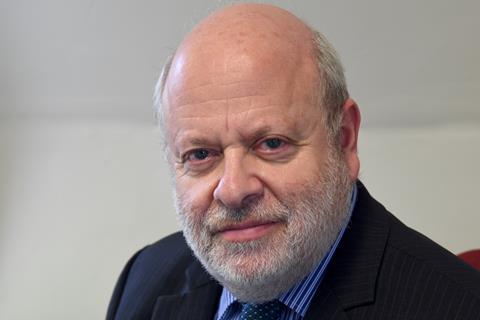There is a tradition among Continental bars, much stronger than here in the UK, to challenge in the courts new legislation or regulations with which they do not agree.

The courts’ views on the role that lawyers play in the legal system is as a result highlighted and clarified, sometimes not to the bars’ liking. The bars have just lost a case questioning the lawfulness of the EU’s Russian sanctions, introduced after the invasion of Ukraine. The General Court of the Court of Justice of the European Union issued its ruling last week in three joined cases - T-797/22, T-798/22 and T-828/22. Only one judgement has been published, but the press release makes it clear that the same judgement covers all three. And although this is an EU ruling, it touches directly on lawyers and their role, and so is of interest to us.
The published judgement covers the case brought by Brussels order of Dutch-speaking lawyers, supported by the German Federal Bar (BRAK) and the Geneva Bar. These Bars threw the book at the EU Council regulations which forbade legal services to be provided to certain Russian entities in certain circumstances. They said the regulations breached professional secrecy, interfered with the independence of lawyers, prevented the right of access to a lawyer, lacked legal certainty, were contrary to the rule of law – and so on. But they lost on all counts.
The difficulty for us solicitors is that the court distinguished between two kinds of legal services: those tied in some way to judicial proceedings; and those not tied to judicial proceedings. If the Bars had been complaining only about legal services tied to judicial proceedings, they would have won – but, as the court pointed out, that type of legal service was specifically excluded from the sanctions regulations. So the substance of the court’s rulings was focused on legal services not tied to judicial proceedings i.e. non-contentious legal advice.
Given that solicitors provide a good deal of non-contentious legal advice, we may be surprised to find that the court declared that there is no rule of EU law which enshrines a fundamental right to consult a lawyer in non-contentious matters. If it is not tied to judicial proceedings, there is no right to a lawyer. That is rather a large gap in the right of access to justice, as if justice can be defined solely in terms of the resolution of disputes.
The Bars argued that the independence of lawyers was breached by a regulation which told them in which cases they could advise a client. The court agreed that there was previous jurisprudence which held that the independence of lawyers is particularly important for the purpose of protecting clients’ rights to an effective remedy (there must always be a remedy in sight, in their view, always some form of judicial proceedings). The consequences at the time of this cited judgement was that in order for actions to be admissible, the applicant had to be represented by an independent lawyer (this was in a famous case which held that in-house lawyers did not have such independence at EU level).
The Bars argued that the Council of Bars and Law Societies of Europe (CCBE) has stated that the independence of lawyers is important in both contentious and non-contentious matters. Its code of conduct clearly states that ‘independence is necessary in non-contentious matters as well as in litigation’. But the court dismissed that, saying that the provisions of the Code of Conduct for European lawyers – which are supposed to be adopted by all EU Bars for the purpose of cross-border legal services - are not rules of EU law and cannot constitute a legal basis for the recognition of the independence of lawyers at EU level. Wham, wham, wham, the Bars’ arguments fell.
The Bars tried everything. What about the need for legal certainty as part of the rule of law? No, that just applies to the characteristics to be possessed by rules, not to the right to be advised as to what the rules mean. What about legal advice in non-contentious matters being part of the essential activity of lawyers, which is protected by the values of the rule of law? No, the court repeated that there is no right in EU law to advice in non-contentious matters. And so on.
I have not dealt with the arguments regarding professional secrecy, which centred on the need to seek authorisation to act for a Russian client, and so to disclose client details to the authorities about the client’s case. You won’t be surprised to learn that the court wriggled out of that as well.
This was a decision by the General Court, and so can be appealed to the Court of Justice. The dilemma for the losing bars is whether an appeal will save the day, or just make matters worse.































2 Readers' comments